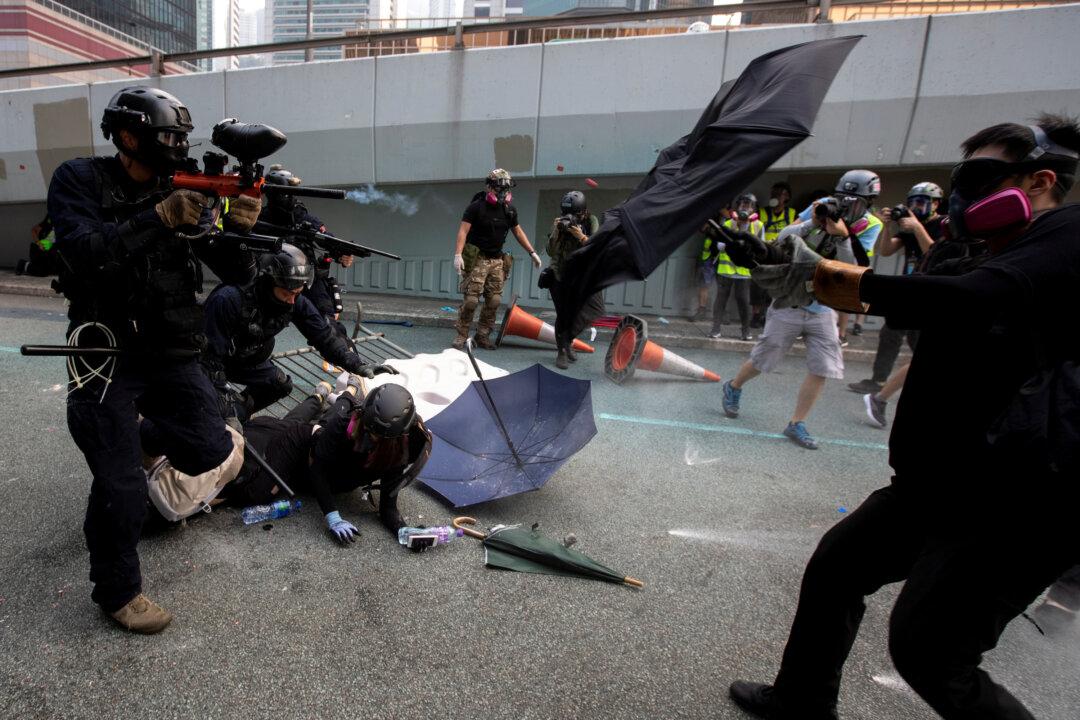HONG KONG—Hong Kong’s government is expected to discuss sweeping emergency laws on Oct. 5 that would include banning face masks at protests, two people told Reuters, as the Chinese-ruled territory grapples with an escalating cycle of violence.
Authorities have already loosened guidelines on the use of force by police, according to documents seen by Reuters on Oct. 3, as they struggle to stamp out pro-democracy protests that have rocked Hong Kong for nearly four months.





